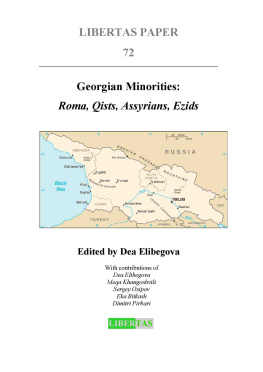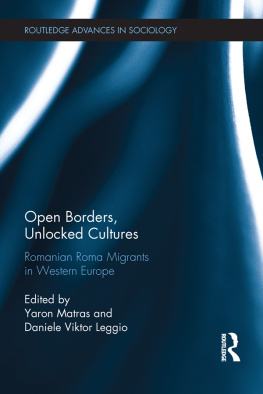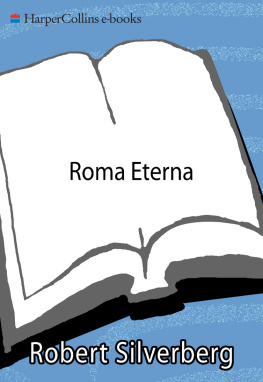Dea Elibegova - Georgian Minorities: Roma, Qists, Assyrians, Ezids
Here you can read online Dea Elibegova - Georgian Minorities: Roma, Qists, Assyrians, Ezids full text of the book (entire story) in english for free. Download pdf and epub, get meaning, cover and reviews about this ebook. year: 2009, publisher: Libertas, genre: Politics. Description of the work, (preface) as well as reviews are available. Best literature library LitArk.com created for fans of good reading and offers a wide selection of genres:
Romance novel
Science fiction
Adventure
Detective
Science
History
Home and family
Prose
Art
Politics
Computer
Non-fiction
Religion
Business
Children
Humor
Choose a favorite category and find really read worthwhile books. Enjoy immersion in the world of imagination, feel the emotions of the characters or learn something new for yourself, make an fascinating discovery.
- Book:Georgian Minorities: Roma, Qists, Assyrians, Ezids
- Author:
- Publisher:Libertas
- Genre:
- Year:2009
- Rating:3 / 5
- Favourites:Add to favourites
- Your mark:
- 60
- 1
- 2
- 3
- 4
- 5
Georgian Minorities: Roma, Qists, Assyrians, Ezids: summary, description and annotation
We offer to read an annotation, description, summary or preface (depends on what the author of the book "Georgian Minorities: Roma, Qists, Assyrians, Ezids" wrote himself). If you haven't found the necessary information about the book — write in the comments, we will try to find it.
Georgian Minorities: Roma, Qists, Assyrians, Ezids — read online for free the complete book (whole text) full work
Below is the text of the book, divided by pages. System saving the place of the last page read, allows you to conveniently read the book "Georgian Minorities: Roma, Qists, Assyrians, Ezids" online for free, without having to search again every time where you left off. Put a bookmark, and you can go to the page where you finished reading at any time.
Font size:
Interval:
Bookmark:
 Dea ELIBEGOVA works as Chief Specialist at the Department on National/Ethnic Minority Issues, Office of the State Minister for Reintegration, Tbilisi , Georgia . She obtained a B.A. degree in English language at Georgian Technical University and a Master at Tbilisi State University , Faculty of Social Sciences, Department of South Caucasus in Transformation, on the subject of her contribution for this LIBERTAS Paper. One of the few experts on minority issues in Georgia (and of Armenian origin ), she worked before in Tbilisi , among others, as an analyst for the Foreign Relations Committee of the Georgian Parliament, the Presidential Administration, the Ministry of Foreign Affairs and the Public Defender (Ombudsman). She also got large media experience in working for 1 years with Georgian Public Television Broadcasting , where she was part of the News, Social and Political Programs Department (broadcasting for minorities).
Dea ELIBEGOVA works as Chief Specialist at the Department on National/Ethnic Minority Issues, Office of the State Minister for Reintegration, Tbilisi , Georgia . She obtained a B.A. degree in English language at Georgian Technical University and a Master at Tbilisi State University , Faculty of Social Sciences, Department of South Caucasus in Transformation, on the subject of her contribution for this LIBERTAS Paper. One of the few experts on minority issues in Georgia (and of Armenian origin ), she worked before in Tbilisi , among others, as an analyst for the Foreign Relations Committee of the Georgian Parliament, the Presidential Administration, the Ministry of Foreign Affairs and the Public Defender (Ombudsman). She also got large media experience in working for 1 years with Georgian Public Television Broadcasting , where she was part of the News, Social and Political Programs Department (broadcasting for minorities). Meqa KHANGOSHVILI : After obtaining at Tbilisi State Un i versity a Bachelors degree in physics, she reached a literature degree , and a Ph.D. at Technical University of Georgia on the Heroic Epos of the Vainakhs. Lecturer of Chechen language at different universities, head of the Congress of Caucasian Women and for many years head of the Chechen-Ingush Department in Caucasian House Tbilisi. A l eading expert on Chechen questions and refugees, the Pankisi Gorge and the Q ists , and a former TV program anchor on minority issues, she is today Chief Specialist in the Civil Integration Department, State Minist ry for Reintegration .
Meqa KHANGOSHVILI : After obtaining at Tbilisi State Un i versity a Bachelors degree in physics, she reached a literature degree , and a Ph.D. at Technical University of Georgia on the Heroic Epos of the Vainakhs. Lecturer of Chechen language at different universities, head of the Congress of Caucasian Women and for many years head of the Chechen-Ingush Department in Caucasian House Tbilisi. A l eading expert on Chechen questions and refugees, the Pankisi Gorge and the Q ists , and a former TV program anchor on minority issues, she is today Chief Specialist in the Civil Integration Department, State Minist ry for Reintegration . SergeyGeorgievichOSIPOV , Doctor of Medicine, Professor, corresponding member of the Academy of Military Sciences, Head of Epidemiology and Preventive Medicine Department at Federal Research and Clinical Center of Pediatric Hematology, Oncology and Immunology under the Ministry of Health of Russia. He was born in Tbilisi in 1946. 1953 - 1964 Secondary School 49 in Tbilisi , 1971 graduat ion from the 2 nd Moscow State Medical Institute named after N.I. Pirogov. In 1979 he defended a thesis on immunotherapy of childrens acute leukemia at the Hertsen Oncology Research Institute , i n 1987 a doctorate thesis on immunology of atherosclerosis and ischemic heart disease at the All-Union Cardiologic Scientific Center (AUCSC) under the USSR Academy of Medical Sciences (AMS). From 1988 S.G. Osipov was heading the Coordination and Scientific Research Planning at the AUCSC under the USSR AMS, being at the same time the Academic Secretary of the Council of Cardiologic Experts under the Bureau of the USSR A M S. From 1991 leading the Clinical Immunologic Laboratory at the newly established Research Center of Pediatric Hematology under the Ministry of Health of Russia , and f rom 2000 - 2004 Vice President of the 21 st Century Clinic Foundation, a coordinating center of the Health Promoting Hospitals Worldwide Network under the World Health Organization, and a member of the Scientific Council of the WHO Regional Office for Europe for complex medical care.
SergeyGeorgievichOSIPOV , Doctor of Medicine, Professor, corresponding member of the Academy of Military Sciences, Head of Epidemiology and Preventive Medicine Department at Federal Research and Clinical Center of Pediatric Hematology, Oncology and Immunology under the Ministry of Health of Russia. He was born in Tbilisi in 1946. 1953 - 1964 Secondary School 49 in Tbilisi , 1971 graduat ion from the 2 nd Moscow State Medical Institute named after N.I. Pirogov. In 1979 he defended a thesis on immunotherapy of childrens acute leukemia at the Hertsen Oncology Research Institute , i n 1987 a doctorate thesis on immunology of atherosclerosis and ischemic heart disease at the All-Union Cardiologic Scientific Center (AUCSC) under the USSR Academy of Medical Sciences (AMS). From 1988 S.G. Osipov was heading the Coordination and Scientific Research Planning at the AUCSC under the USSR AMS, being at the same time the Academic Secretary of the Council of Cardiologic Experts under the Bureau of the USSR A M S. From 1991 leading the Clinical Immunologic Laboratory at the newly established Research Center of Pediatric Hematology under the Ministry of Health of Russia , and f rom 2000 - 2004 Vice President of the 21 st Century Clinic Foundation, a coordinating center of the Health Promoting Hospitals Worldwide Network under the World Health Organization, and a member of the Scientific Council of the WHO Regional Office for Europe for complex medical care. EkaBITKASH was born in May in 1987 in Tbilisi /Georgia. 1992 -2004 Authors School . In 2003 she entered the M usical C ollege named after Zachariah Paliash - vili , which she finished i n 2007. In 2005 she started Oriental Studies at Ivane Javakchishvili State University in Tbilisi , in the Art Faculty. She is a s pecialist in Assyriology. Since 2009 also C hair person of the Assyrian Youth Organization NINEVIA in Georgia
EkaBITKASH was born in May in 1987 in Tbilisi /Georgia. 1992 -2004 Authors School . In 2003 she entered the M usical C ollege named after Zachariah Paliash - vili , which she finished i n 2007. In 2005 she started Oriental Studies at Ivane Javakchishvili State University in Tbilisi , in the Art Faculty. She is a s pecialist in Assyriology. Since 2009 also C hair person of the Assyrian Youth Organization NINEVIA in Georgia DimitriPIRBARI, born in 1978 in Tbilisi / Georgia , graduated in 1995 from the secondary school In 1999 he graduated from Georgian Agrarian University , specialized in the Architecture of Green Buildings in which he got a Masters Degree in 2001 . In 2004 he graduated from Tbilisi Asia and Africa Institute, Faculty of the History of the Eastern Countries and International Relations, Arabian Department. He also served in the Ezids main temple in Lalishi ( Iraq s Kurdistan ). Working on the history of Kurds and the issues of Ezid religion , he is the author of different books, scientific papers and publications: O n the way to the truth: Ezidism, Tbilisi, 2003 , Ezidi Sarkhada (Ezids resettleme nt to the South Caucasus 2008), Kurds in Georgia, (co-author together with Mamuka Komakhia), Tbilisi 2008 and many others ore. In 2003 Kurdish - Russian language n ewspaper New V iews co-editor, Tbilisi , since 2004 chairman of Kurds I ntelligentsias U nion in Georgia, Tbilisi , since 2008 Georgian Radio, News & Music programs editor and the anchor.
DimitriPIRBARI, born in 1978 in Tbilisi / Georgia , graduated in 1995 from the secondary school In 1999 he graduated from Georgian Agrarian University , specialized in the Architecture of Green Buildings in which he got a Masters Degree in 2001 . In 2004 he graduated from Tbilisi Asia and Africa Institute, Faculty of the History of the Eastern Countries and International Relations, Arabian Department. He also served in the Ezids main temple in Lalishi ( Iraq s Kurdistan ). Working on the history of Kurds and the issues of Ezid religion , he is the author of different books, scientific papers and publications: O n the way to the truth: Ezidism, Tbilisi, 2003 , Ezidi Sarkhada (Ezids resettleme nt to the South Caucasus 2008), Kurds in Georgia, (co-author together with Mamuka Komakhia), Tbilisi 2008 and many others ore. In 2003 Kurdish - Russian language n ewspaper New V iews co-editor, Tbilisi , since 2004 chairman of Kurds I ntelligentsias U nion in Georgia, Tbilisi , since 2008 Georgian Radio, News & Music programs editor and the anchor.Font size:
Interval:
Bookmark:
Similar books «Georgian Minorities: Roma, Qists, Assyrians, Ezids»
Look at similar books to Georgian Minorities: Roma, Qists, Assyrians, Ezids. We have selected literature similar in name and meaning in the hope of providing readers with more options to find new, interesting, not yet read works.
Discussion, reviews of the book Georgian Minorities: Roma, Qists, Assyrians, Ezids and just readers' own opinions. Leave your comments, write what you think about the work, its meaning or the main characters. Specify what exactly you liked and what you didn't like, and why you think so.









